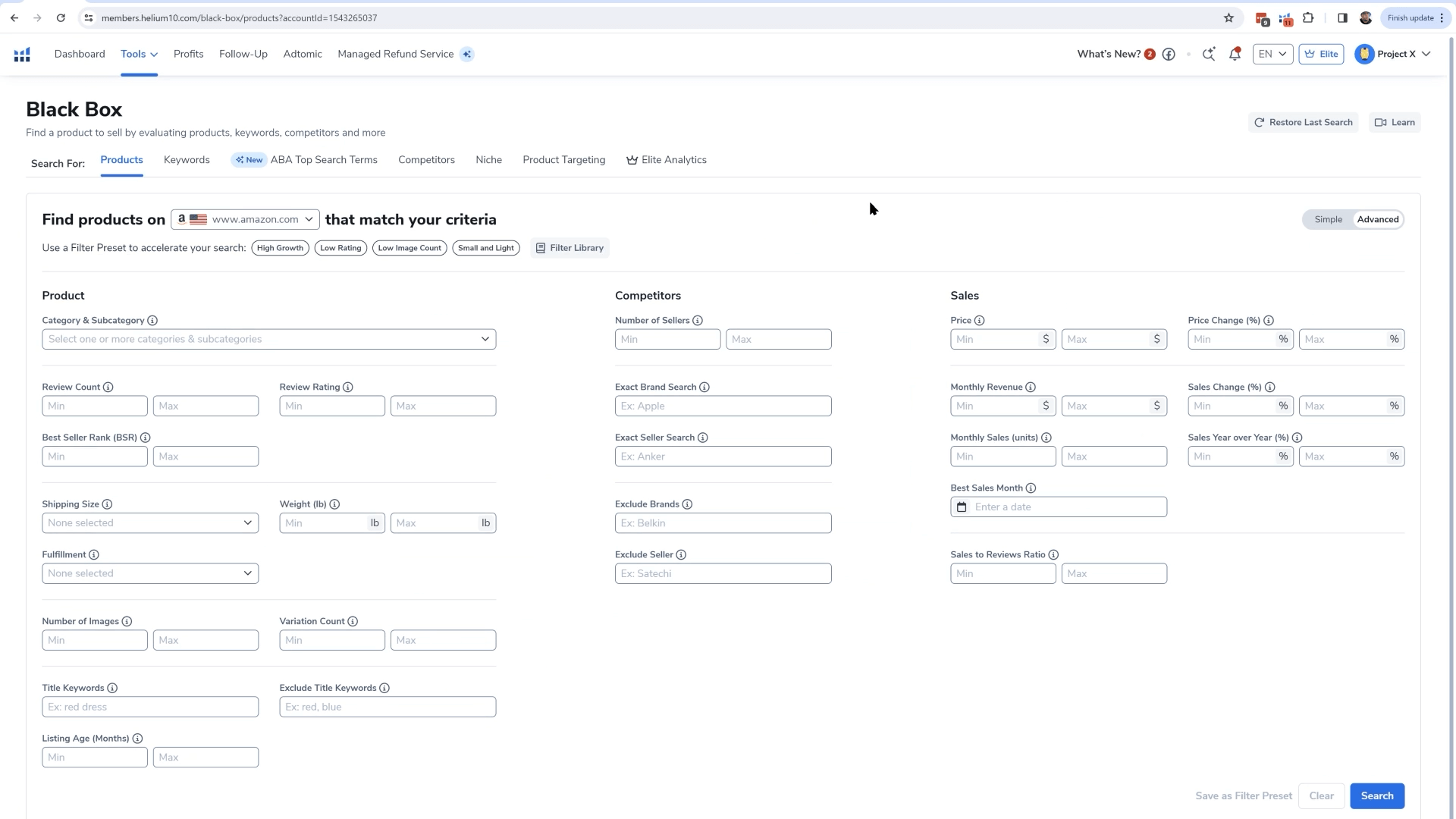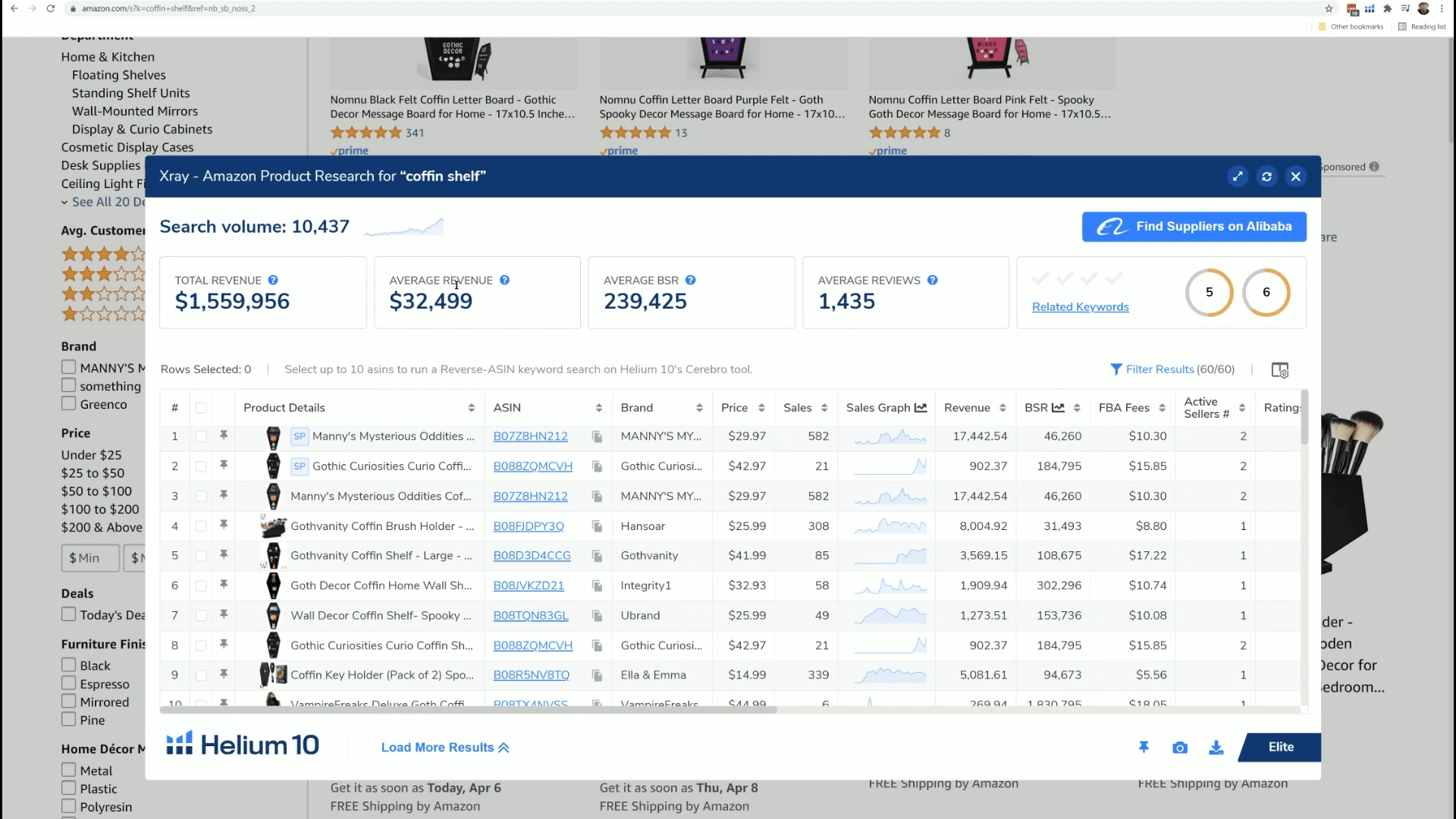
Compatible with: Amazon
Amazon Review Checker
Find valuable insights with an in-depth look at product reviews.
Benefits of the Review Insights
Get a competitive advantage by knowing your customer
- Know what product features your customers like and dislike
- Easily export product reviews to a CSV file
- View how your products ratings are distributed
- Filter reviews by Verified, Helpful, with Images, or with Videos

Plans & Pricing
For every stage of your seller journey
Save up to 25% per month when billed annually.



Get Started with Review Insights
Gain valuable information about your customers today!
Download Extension- Export all your reviews for easy analysis!
- View which phrases are used most frequently in the reviews.
- Read customer’s questions and sort by votes/answer count.
Thought Leadership, Tips, and Tricks
Never miss insights into the Amazon selling space by signing up for our email list!

20 minute read
6 Easy Steps to Become an Amazon Influencer in 2024

8 minute read
Using Amazon Reviews for Competitor Analysis
FAQs
Additional Benefits of Helium 10
Solutions for Every Seller




Meet Our In-House Experts
Learn from industry leaders through webinars, courses, podcasts and more
10,144
People signed up last week.
Start Using the Review Insights Today!
If you’d like to try out Review Insights for yourself, sign up to check it out online today!
Download ExtensionThe Details
What Is an Amazon Review Sentiment Analysis?
Amazon Review Sentiment Analysis is a process that involves using natural language processing (NLP) and machine learning techniques to analyze the sentiment or emotional tone expressed in customer reviews on the Amazon platform. This analysis aims to determine whether a particular review conveys a positive, negative, or neutral sentiment regarding the product or service being reviewed.
What Is the Objective of a Sentiment Analysis on Amazon Reviews?
The objective of conducting sentiment analysis on Amazon reviews is to extract valuable insights from customer feedback. This analysis aids businesses in comprehending customer emotions and opinions, enabling them to gauge satisfaction levels, identify areas for improvement, and make informed decisions. By discerning positive sentiments, companies can enhance marketing efforts and build brand credibility, while negative sentiments offer specific feedback for product enhancement and customer service refinement. Sentiment analysis also empowers competitive analysis, user experience optimization, risk management, and market research, fostering data-driven strategies and closing the feedback loop with customers. Ultimately, this analysis transforms unstructured customer reviews into actionable information, facilitating strategic planning and fostering improved products, services, and customer relationships.
What Is an Example of an Amazon Review Sentiment Analysis?
An example of an Amazon review sentiment analysis would be:
Review Text: “I purchased this smartphone and I’m extremely satisfied with its performance. The camera quality is fantastic, and the battery life has exceeded my expectations. Definitely worth the price!”
Sentiment Analysis Result: Positive
In this example, the sentiment analysis algorithm would analyze the text of the review and determine that the sentiment expressed is positive. The use of phrases like “extremely satisfied,” “fantastic camera quality,” and “exceeded my expectations” indicates a high level of satisfaction with the product, leading to a positive sentiment label.
By applying sentiment analysis to numerous reviews like this one, businesses can gather quantitative insights into customer opinions and emotions, helping them understand the overall reception of their products and make informed decisions to enhance their offerings.
How to Do a Sentiment Analysis of Amazon Reviews
Performing a sentiment analysis of Amazon reviews involves several steps. You start by collecting reviews and cleaning the text data. Then, tokenize the cleaned text and apply a sentiment analysis model to label or score each review’s sentiment (positive, negative, neutral). Aggregating these results provides insights into sentiment trends, which can be visualized and interpreted to understand customer opinions. These insights guide decision-making, enabling you to emphasize positive sentiments in marketing, address negatives for improvement, and enhance customer service. Continuous monitoring ensures up-to-date insights, and responding to reviews constructively builds customer relationships. While accuracy varies, sentiment analysis tools and libraries simplify the process, making it accessible even to those without extensive technical expertise.
How Do I Download Reviews From Amazon Seller Central?
There is currently not a built-in feature on Amazon Seller Central that allows you download reviews. However, there are several third-party tools such as Helium 10 that you can use to download Amazon reviews
Is There an Easier Way to Download Reviews?
If you are looking for an easy way to download reviews from Amazon, try out Helium 10’s Review Insights tool which can be found using Helium 10’s Chrome Extension. Once you have downloaded the Helium 10 Chrome Extension, go to the product page on Amazon that you want to download the reviews for. From there you will want to open up the Chrome Extension and select ‘Review Insights’, then select ‘All reviews’, and on the right side you will see the ‘Export reviews’ button. This will save all the reviews into a CSV file, which you can then use to perform your review sentiment analysis.
What Is an Amazon Review Checker and How Does It Work?
An Amazon review checker is a tool or service designed to analyze and assess the authenticity and quality of reviews on Amazon product listings. The goal of such tools is to help consumers, sellers, and businesses identify potentially fake or biased reviews, ensuring a more trustworthy and informed shopping experience. Here’s how an Amazon review checker typically works:
1. Data Gathering
The review checker collects data from various Amazon product listings, including the reviews themselves, reviewer profiles, ratings, and other relevant information.
2. Textual Analysis
The tool employs natural language processing (NLP) techniques to analyze the content of reviews. It looks for patterns, language anomalies, and similarities that might indicate fake or manipulated reviews.
3. Reviewer Analysis
Review checkers examine the profiles of reviewers leaving reviews. They look for patterns such as a high number of reviews posted in a short period, unusually positive or negative sentiments across multiple products, and reviewer history.
4. Rating Analysis
The distribution of ratings (5 stars, 4 stars, etc.) is also analyzed. Suspicious reviews might have a disproportionately high number of 5-star ratings or a sudden spike in positive reviews.
5. Sentiment Analysis
The tool assesses the sentiment of reviews to identify overly positive or negative language that might indicate bias or manipulation.
6. Review Similarity
Review checkers compare the wording, phrases, and language used in different reviews to detect duplicate or copied content. This could indicate the use of fake reviews across multiple listings.
7. Time Analysis
The timing of reviews is examined to identify instances where a product receives a large number of reviews in a very short period, which could be a sign of orchestrated review campaigns.
8. Machine Learning and AI
Advanced review checkers use machine learning and AI algorithms to improve their accuracy over time. They learn from patterns in genuine and suspicious reviews to refine their analysis.
9. Results Reporting
The tool provides users with a report or a summary indicating the likelihood of fake or biased reviews for a specific product. This report helps shoppers and sellers make informed decisions.
It’s important to note that while Amazon review checkers can be valuable tools, their accuracy isn’t always perfect. Legitimate reviews might sometimes be flagged as suspicious due to various factors, and deceptive tactics used by review spammers can evolve to avoid detection. Therefore, it’s advisable to use review checkers as one tool among others for evaluating products and conducting due diligence.
When using review checkers, make sure to comply with Amazon’s policies and guidelines and prioritize tools from reputable sources to ensure the best results.
What Is the Importance of Analyzing Amazon Reviews?
Analyzing Amazon reviews is of paramount importance for a range of stakeholders. For consumers, reviews offer crucial insights for making informed purchase decisions, assessing product quality, and aligning expectations. Sellers and manufacturers benefit by gaining actionable feedback for product enhancement, utilizing positive reviews in marketing efforts, and staying competitive by analyzing reviews of rival products. Amazon itself benefits from improved user experiences, valuable content generation, and the ability to maintain review quality and seller evaluation. In essence, the analysis of Amazon reviews fosters transparency, authenticity, and trust in the e-commerce landscape, benefiting consumers, sellers, manufacturers, and the platform itself.
Do You Really Need to Use an Amazon Review Checker?
Using an Amazon review checker can offer benefits, but it’s not always essential. The decision depends on your role and needs. These tools can efficiently analyze reviews, provide objectivity, save time, and improve accuracy, making them particularly useful for sellers and businesses looking to monitor quality and competitors. If you suspect fake reviews or deal with numerous products, a review checker can be valuable. However, they may come with costs and the risk of false positives. For those with few products or confident in their judgment, manual review inspection might suffice. Ultimately, the choice depends on your circumstances and level of expertise.




